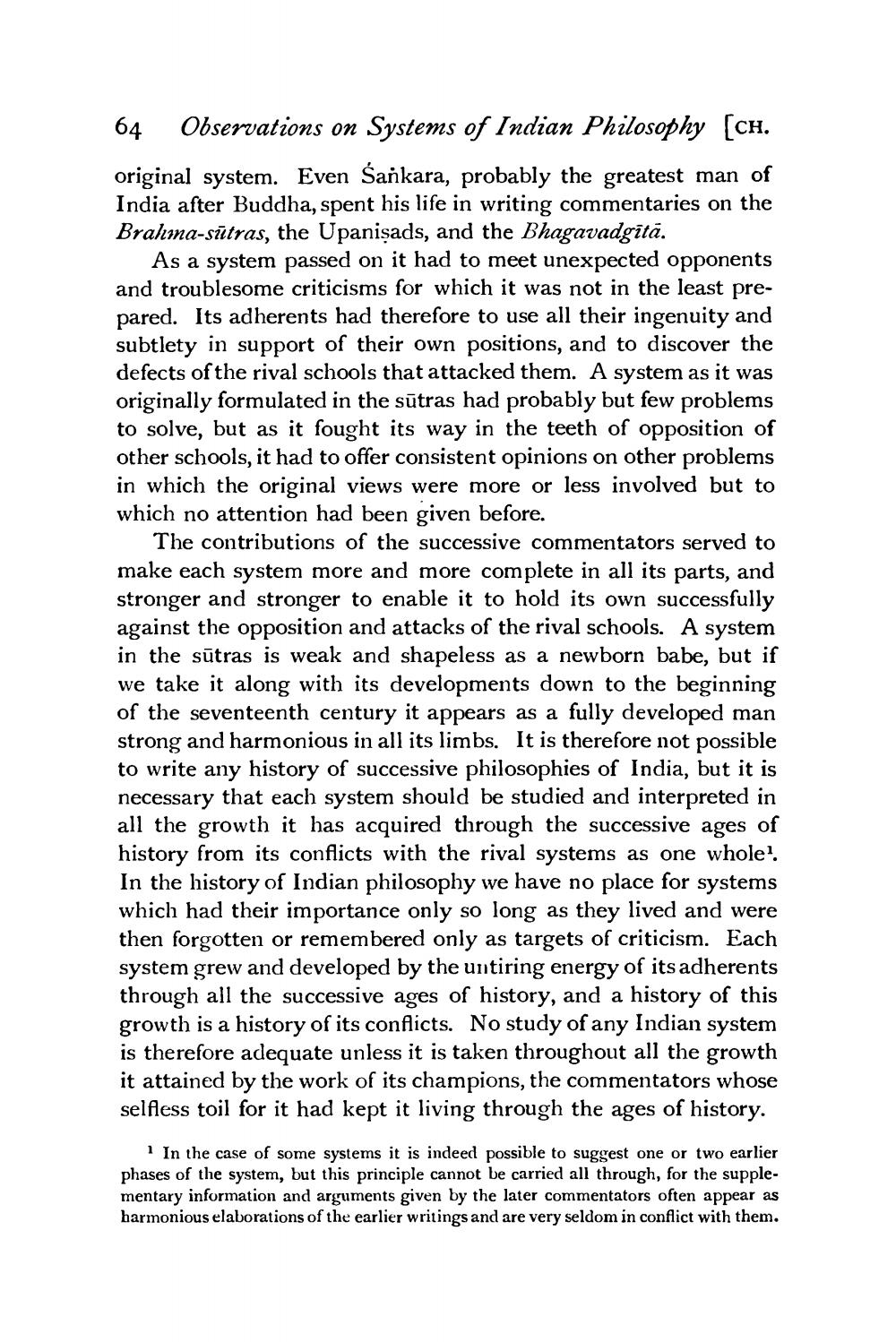________________
64
Observations on Systems of Indian Philosophy (CH.
original system. Even Sankara, probably the greatest man of India after Buddha, spent his life in writing commentaries on the Brahma-sūtras, the Upanisads, and the Bhagavadgitā.
As a system passed on it had to meet unexpected opponents and troublesome criticisms for which it was not in the least prepared. Its adherents had therefore to use all their ingenuity and subtlety in support of their own positions, and to discover the defects of the rival schools that attacked them. A system as it was originally formulated in the sūtras had probably but few problems to solve, but as it fought its way in the teeth of opposition of other schools, it had to offer consistent opinions on other problems in which the original views were more or less involved but to which no attention had been given before.
The contributions of the successive commentators served to make each system more and more complete in all its parts, and stronger and stronger to enable it to hold its own successfully against the opposition and attacks of the rival schools. A system in the sūtras is weak and shapeless as a newborn babe, but if we take it along with its developments down to the beginning of the seventeenth century it appears as a fully developed man strong and harmonious in all its limbs. It is therefore not possible to write any history of successive philosophies of India, but it is necessary that each system should be studied and interpreted in all the growth it has acquired through the successive ages of history from its conflicts with the rival systems as one whole! In the history of Indian philosophy we have no place for systems which had their importance only so long as they lived and were then forgotten or remembered only as targets of criticism. Each system grew and developed by the untiring energy of its adherents through all the successive ages of history, and a history of this growth is a history of its conflicts. No study of any Indian system is therefore adequate unless it is taken throughout all the growth it attained by the work of its champions, the commentators whose selfless toil for it had kept it living through the ages of history.
1 In the case of some systems it is indeed possible to suggest one or two earlier phases of the system, but this principle cannot be carried all through, for the supplementary information and arguments given by the later commentators often appear as harmonious elaborations of the earlier writings and are very seldom in conflict with them.




